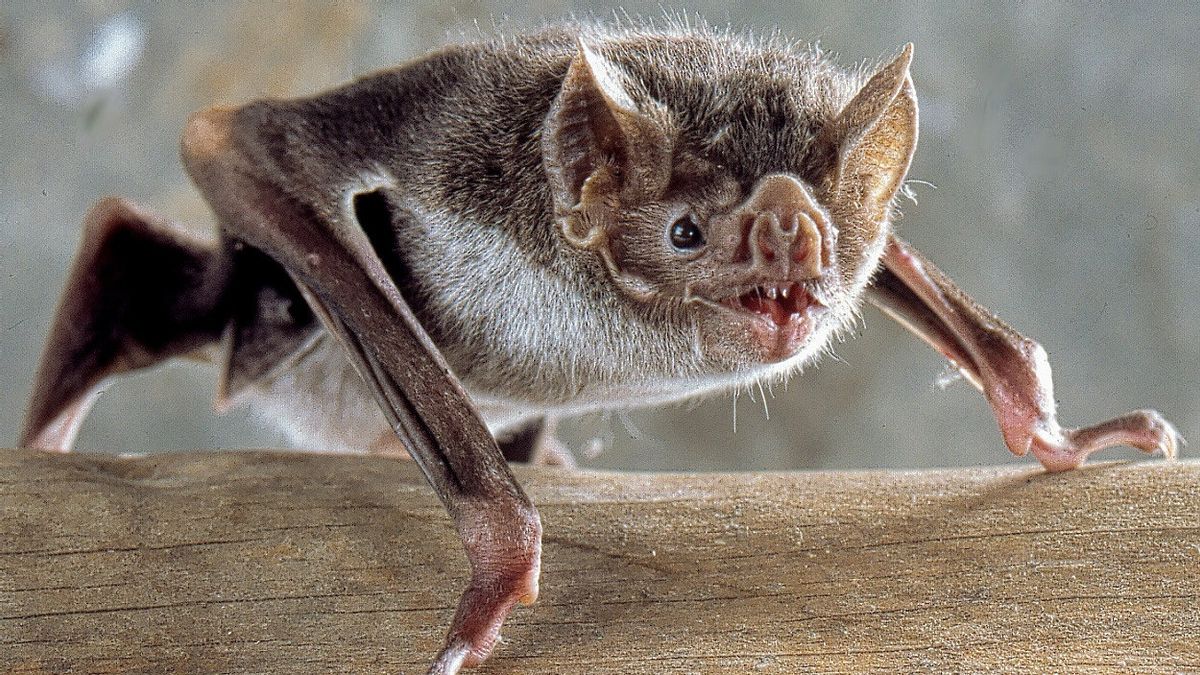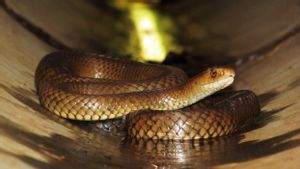JAKARTA - When one thinks of vampire bats, friendship and cooperation may not be among the qualities that spring to mind tonight's creatures.
Scientists on Thursday, September 23 provided a deeper understanding of the social relationships among vampire bats, showing how those who have formed 'friendship'-like bonds with others will meet their friends while looking for food.
The researchers attached a tiny device to 50 vampire bats to track their nocturnal foraging activity in Panama when these flying mammals drink blood from wounds they inflict on livestock in the prairies. The study involved female bats, which are known to have stronger social relationships than males.
Among bats, there are 23 wild-born individuals who have been kept in captivity for about two years during research into bat social behavior. Social ties are visible between them. After being released back into the wild, bats were found to often join 'friends' during foraging, perhaps coordinating hunting.
"Each bat maintains its own network of cooperative social bonds," said behavioral ecologist Gerald Carter of Ohio State University and the Smithsonian Tropical Research Institute, who led the study published in the journal 'PLoS Biology'.

Social bonds among vampire bats as they perch on trees, include caring for one another and spitting out blood meals for hungry friends. This study shows that the social bonds formed in the nest extend to hunting.
"This study opens an exciting new window into the social lives of these animals," said Carter.
The researchers suspect that the bats, although almost never out foraging with their "friends," connect with them during the hunt, perhaps even recognizing each other's vocalizations, for mutual benefit. They hypothesized that the bats might exchange information about the location of prey or access to open wounds for feeding.
The vampire bat, which inhabits the warmer regions of Latin America and has a wingspan of about 7 inches (18 cm), is the only mammal on a blood-only diet. They live in colonies ranging from tens to thousands of individuals.
"People's first reaction to vampire bats is usually, 'Uh, scary.' But once you tell them about their complex social life, they are quite surprised that we can find behavior that is somewhat similar to what humans do, and which might be expected in primates, in bats," said study co-author Simon Ripperger, a post-doctoral researcher from Smithsonian Tropical Research Institute.
Ripperger calls them 'amazing creatures' for several reasons.

"Even apart from their social life, vampire bats are quite special, specializing in a 100 percent blood diet is already quite rare among vertebrates," Ripperger said.
"They are amazing runners, which you don't expect in bats. They have heat sensors in their snouts that help them find a place to bite. They have a protein in their saliva that prevents blood from clotting, which is actually used in medical tests to help prevent blood clots in patients suffering from stroke," said Ripperger.
Bats attack prey from the ground, using their sharp teeth to open wounds, licking blood with their tongues.
SEE ALSO:
Carter says there is reason to be afraid of vampire bats because they can transmit rabies to livestock and humans.
"But I think they are beautiful and interesting animals. In this way they are a bit like grizzly bears, sharks, rats, and rattlesnakes, animals that may not help people in any way and may even harm them, but should still be respected for their sake. their own interests," Carter added.
The English, Chinese, Japanese, Arabic, and French versions are automatically generated by the AI. So there may still be inaccuracies in translating, please always see Indonesian as our main language. (system supported by DigitalSiber.id)


















